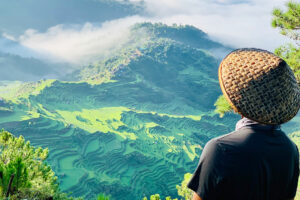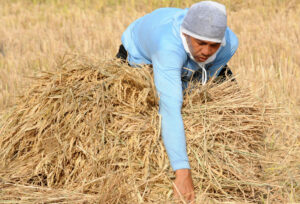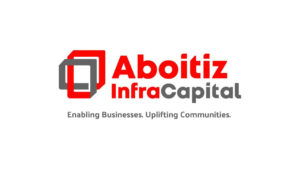Building a resilient and sustainable Philippines

For its June 14 general membership meeting at the Shangri-La The Fort, the Management Association of the Philippines (MAP) invited Department of Environment and Natural Resources (DENR) Secretary Maria Antonia Yulo-Loyzaga to discuss the national priorities on environment, natural resources and climate change.
In the meeting, Secretary Loyzaga urged the private sector and businesses to support the government’s efforts on building an inclusive, resilient, and sustainable Philippines.
“There is no question that the preservation of the environment is the preservation of life,” Secretary Loyzaga said, opening her statement with a quote from the President.
The future risks on the economy are being predicted to be environmentally instigated, therefore, the government should elevate its efforts in preserving and efficiently utilizing the country’s natural resources.
According to Secretary Loyzaga, their agenda in fulfilling the DENR’s mandate of risk-managing, and resilience-building in all natural domains, is to pursue a green and blue economy that will be a gateway in establishing livable and sustainable communities.
“In sum, our priorities are to protect, conserve, restore and regenerate the ecosystems that serve as the life support of human, social, and economic development,” she added.
Among the biggest threats that the environment is facing are unsustainable consumption and practices that lead to the production of polluting waste. “This is where our partnerships would not only be strategic but critical for survival,” the DENR Secretary pointed out.
The implementation of the Extended Producer’s Responsibility (EPR) Law has guided large enterprises to recover and divert their plastic footprint produced in 2022 by the end of 2023.
Secretary Loyzaga leveraged the MAP’s general membership meeting for the business stakeholders to “come forward and do your share in partnerships” in managing plastic waste where some have already committed to and work alongside the DENR.
The DENR Secretary also cited that investments are needed in the research for the substitution of single-use plastic, unless there is already such a product with the same functionality and affordability.
Aside from this, the DENR also seeks partnerships and innovations to combat water and air pollution and are setting targets for expanding their capabilities for observation, monitoring and analytics.
“Water security is essential to food, energy and human security,” Secretary Loyzaga said. The resilience in this sector requires the assurance of supply, the robustness, responsiveness, and redundancy of delivery infrastructure and the careful management of demand through conservation, treatment, and reuse.
“Climate action for resilience is therefore everyone’s business,” she emphasized. The mitigation, adaptation, transparency-reporting, and task force guidelines of financial disclosures are needed in achieving a sustainable environment.
With this, the DENR participates in the green transition of the Philippines through:
1. Implementation of national determined contribution policies and measures;
2. Bolstering private sector investment in green development;
3. Ensuring a just transition of workers affected by structural changes;
4. Expanding market opportunities for low-carbon technologies; and,
5. Putting in place enabling policies on environmental safeguards and for offshore wind and floating solar energy projects.
Several enabling policy plans are already in place in support of this work such as a sustainable finance framework and roadmap, a national climate risk framework, a national disaster risk reduction management plan, and other innovative risk financing measures.
To accelerate the low-carbon economy transition, the DENR prioritizes:
a. Pursuing a risk-based approach for sustaining and accelerating economic, social and environmental gains;
b. Supporting the accounting of the Philippines’ natural resources through the natural capital accounting system led by the National Economic and Development Authority or NEDA;
c. Continuing strengthening the National Natural Resources Geospatial Database;
d. Building resilient communities to risk-sensitive unbalanced land management;
e. Combating climate emergencies through practical climate change adaptation measures through science, technology, traditional, and local knowledge; and,
f. Supporting the advancement of innovations and best practices for co-benefits for mitigation and adaptation investments.
The DENR has also engaged with some companies in the private sector in co-benefits projects that include afforestation and reforestation for carbon sequestration on land through the voluntary carbon market.
The call for partners who go beyond environmental, social, and governance (ESG) is as much needed as ever. The DENR also seeks “partners who go beyond compliance to achieve strategic shared values and are committed to climate and disaster resilience within their core business value cycles.”
Secretary Loyzaga said that the priorities and the complexity of the future requires collaborative effort to “achieve coherence in all we do, convergence in what we can do together, and synergy.”
The DENR seeks collaboration with the MAP to address environment protection and explore opportunities in achieving a sustainable country with resilient communities:
1. Conservation of forests. The DENR looks at the possible projects that will help reforestation and afforestation. According to Secretary Loyzaga, there are opportunities to provide ecosystem services through afforestation, reforestation and for new value creation through the carbon market. These are new streams of income that different corporations can possibly explore in which some companies have already started.
2. Solid waste management. Secretary Loyzaga encourages MAP members to register for the EPR as it is extremely important to bring down the amount of solid waste that is being released into our environment. She also added that the corporations and organizations could be the messengers and implementers for the EPR Law.
3. Adopt local governments through Project Transform. The DENR’s Project Transform involves the adoption of local governments by multiple stakeholders that have invested in their own business and other sustainability practices. These include the provision of sustainable livelihoods that are biodiversity-friendly. Secretary Loyzaga said that these types of projects bring together multiple stakeholders, experts, and corporate citizens to develop resilience in our communities.
This project, which is a carry-over from the work of the National Resilience Council, has already been implemented in Bataan, Ormoc City, and Baguio City, and the DENR calls for the support and consideration of the MAP members to participate.
APPEAL FOR MAP MEMBERSAs the President of MAP, I encourage all our members and the readers of this column to support the environmental protection initiatives identified by Secretary Loyzaga, most specially in solid waste management.
One very low-hanging fruit is to religiously practice waste recycling and segregation in our respective household and backyards. Another one is to stop patronizing single-use plastic.
To build a resilient and sustainable Philippines, a whole-of-society approach is highly critical. Everybody’s help is extremely necessary as the future of our country faces various threats. We must all help protect our environment, communities, and ecosystems by contributing the best way we can.
Benedicta “Dick” Du-Baladad is the president of the MAP and the founding partner and CEO of Du-Baladad and Associates (BDB Law).




